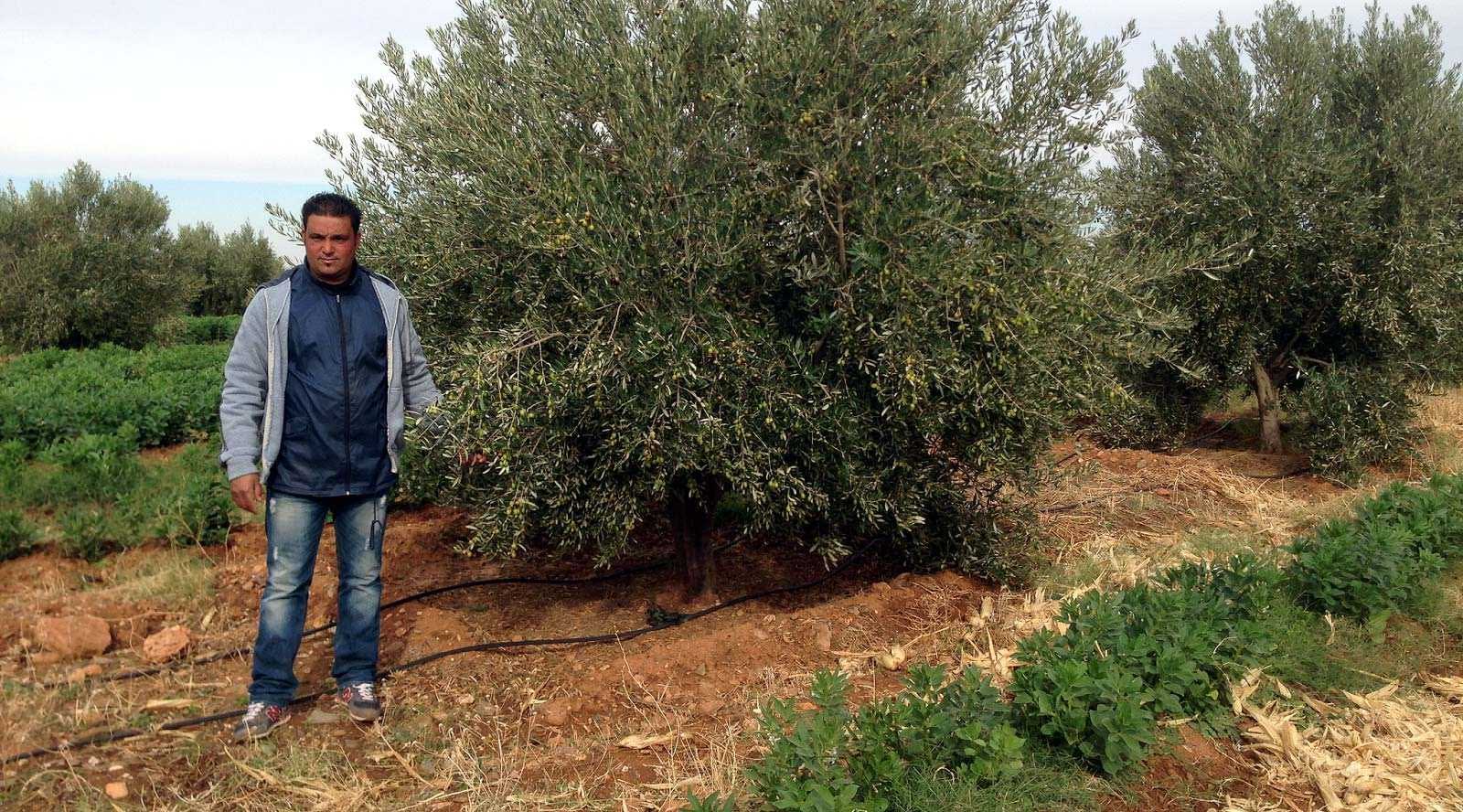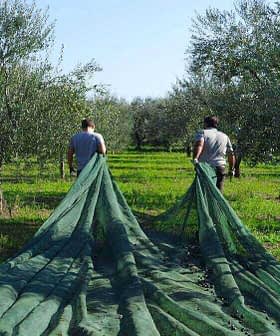Moroccan Farmers Combat Climate Change With Olive Trees and Innovation
Climate change is altering Morocco's landscape and creating serious challenges for the agricultural sector. In the Al Haouz province, resilient farmers took steps to adapt, and they have a burgeoning olive industry to show for it.
 IFAD/N. Muzurovi
IFAD/N. MuzuroviIn the Al Haouz province of Morocco, farmers have adopted techniques to adapt to climate change and the results are paying off. The land improved, yields increased, earnings rose and brighter employment opportunities have reduced the tide of rural-to-urban migration.
Water shortages are one of the most challenging effects of climate change in Morocco. According to the World Bank, severe drought caused the nation’s economic growth to decline 1.5 percent in 2015. Yet, olive farmers in Al Haouz are growing more and earning more than in the past.
Young people used to migrate to the city for work,
Farmers who used to average about 44 pounds of fruit per tree each year are yielding 265 pounds or more from each tree, according to the International Fund for Agricultural Development (IFAD). These impressive results are largely due to drip irrigation, a slow-release method that delivers water directly to the plants’ roots.
Since drip irrigation is more efficient, farmers can water the fields year-round, making it feasible to raise cash crops, like olives, and the staples they live on, including fava, peas and melons. Drip irrigation also leaves them more drinking water.
Erosion is another effect of climate change that threatens the region’s water supply and the livelihood of rural Moroccans. In the Atlas Mountains, as the ground dried, the vegetation disappeared. Without land for grazing, livestock farmers couldn’t raise animals. Soil slid down the steep, bare slopes into the reservoirs.
In a project that spans nearly 50,000 acres, residents fought erosion by terracing and planting olive trees, which stabilizes the soil and retains water. Farmers have been able to return to raising livestock and now they also have olives to sell for additional income.
Overall, farmers are less reliant on rain. New vegetation has created a new micro-climate, and the earth is softer and less dry, the IFAD reported.
Higher yields can also be attributed to new approaches to pruning, collection and storage, which about 90 percent of the region’s farmers have adopted. They using electrical equipment, such as battery-powered pruning shears and vibrating tree rakes. And, according to Reuters, farmers who used to store olives for a month or two are having them pressed within 24 hours, boosting quality and the selling prices.
Farmers’ ability to change their approach and access modern equipment has been possible because of government subsidies and funding made available through IFAD agricultural development projects. The Agricultural Value Chain Development Project in the Mountain Zones of Al-Haouz Province, is a $9.1 million project, which is designed to alleviate rural poverty by improving the value chain of three crops – apples, lambs and olives.
The five-year program, which is scheduled to conclude this year, has seemingly achieved its objectives. In addition to boosting production, it has helped the olive industry innovate with infrastructure including modern olive presses and a laboratory. Producers market access has improved and the program has created attractive opportunities for youth and women.
When climate change dimmed prospects in the agricultural sector people began migrating to the city. 30-year-old El Badaoui Abdelatif told Reuters he thought about leaving. But now he’s part of an agricultural support team that advises on tree health and provides harvest assistance and equipment to farmers. Technicians earn well over $23,000 for four months of work.

IFAD/N. Muzurovi
“With all the training and equipment we have received, the situation is more stable for young people here, our quality of life is better, and I don’t think about going anymore,” he said. This is a sentiment that’s increasingly spread among young people.
Women were drawn from domestic duties into the workforce. They’ve been among those hired as service providers and they’re taking advantage of other opportunities, which is offering financial independence many hadn’t previously known. According to Reuters, ventures include an all-women co-op and women-owned olive pressing equipment.
When people can’t grow food due to changing weather patterns, they migrate, threatening food security of entire countries, said IFAD. But in Al Haouz, the success of development initiatives has given rise to a burgeoning olive industry, which expanded opportunities and stabilized incomes, so migration has decreased.








